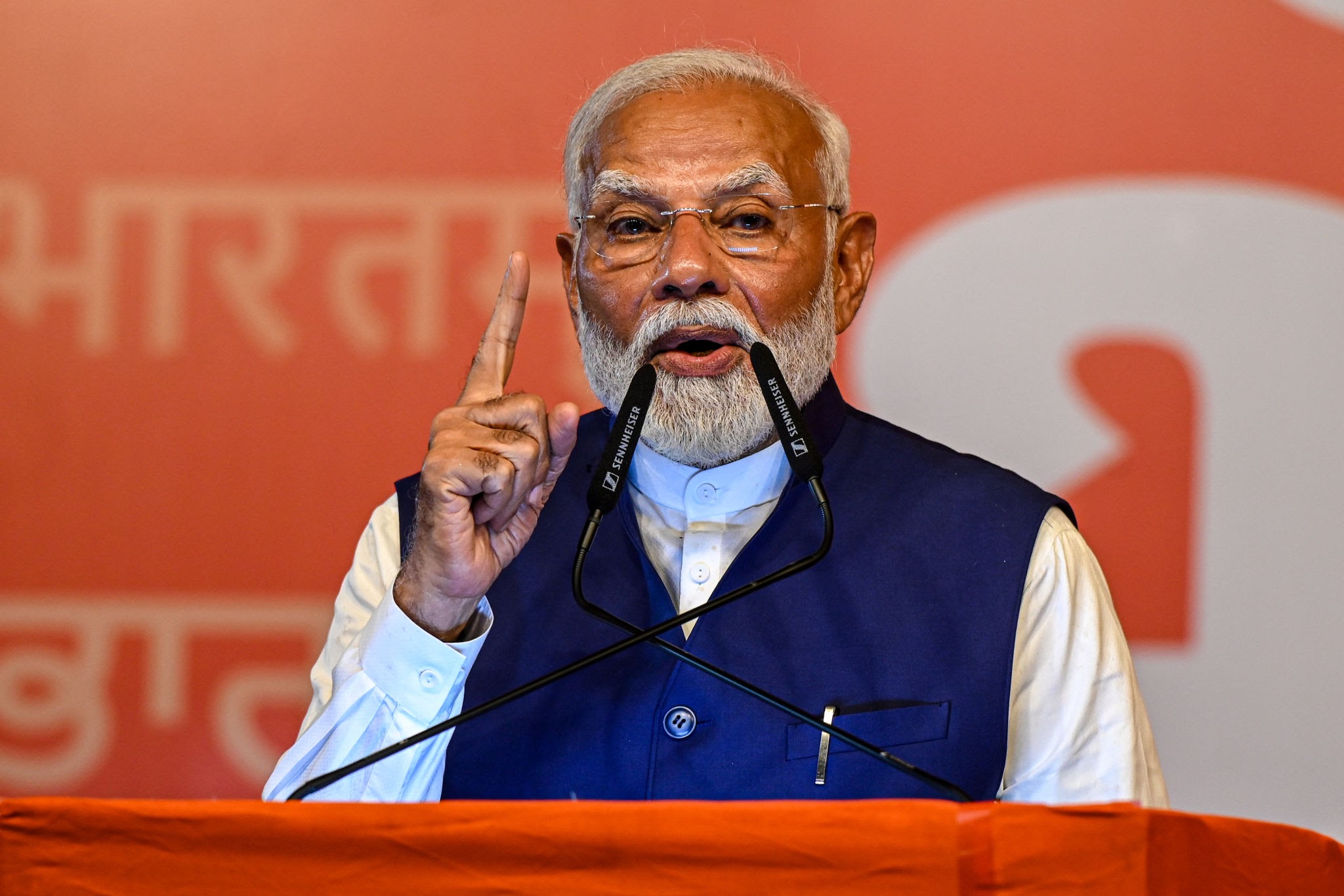Modi's magic! Pakistan left watching, this is how India won the hearts of Gulf countries!

While India aspires to play the role of a leader in the Global South, Prime Minister Modi's priority has been to advance by balancing domestic politics while simultaneously enhancing India's influence in the global arena. Indian Prime Minister Modi is renowned for his efforts to propel India forward as a strong, important, and respected international power.
India's growing relationship with the United States aids this vision. However, even while showcasing close ties with America, India has maintained its relationship with Russia as proof of its strategic autonomy. It appears to have correctly assessed the rise of China and the trade opportunities presented by India's vast economic potential. Despite the support extended to Russia, Western countries have generally refrained from unnecessarily confronting India due to Modi's policy of strategic balance.
Indian foreign policy has taken a giant leap during the Modi era. Global circumstances and equations, along with Prime Minister Narendra Modi's personal stature and activism, have left a significant mark on India's foreign policy.
One can recall India's foreign policy a decade ago when Modi came to power (in 2014). At that time, the opposition spread rumours that he lacked significant foreign policy experience. Portraying his image as a 'Hindu nationalist leader', opposition alliance leaders, including Congress (I), claimed that India's relations with major Islamic countries would deteriorate.
However, the Indian Prime Minister focused on the mantra of 'India First' and pursued a pragmatic foreign policy, starting with neighbouring countries, which surprised both detractors and supporters. In the past decade, he succeeded in reshaping Indian foreign policy to an extent that was previously unimaginable – 'Na bhuto, na bhavishyati' (Neither in the past, nor in the future).
Under Prime Minister Narendra Modi's leadership, India's relationship with the Gulf region is becoming stronger day by day. No matter how much Pakistan pleads, India is increasingly becoming the priority for Gulf leaders in both economic and security matters. Gulf countries have shown interest in advancing political, economic, and security interests with India, making India's engagement with the Gulf region stronger and more multi-faceted.
Under Modi's leadership, the reciprocity shown by Gulf leaders in engaging with India has made bilateral relations more fruitful and remarkably progressive. High-level visits between India and Gulf countries have also increased.
The recent visit of Qatar's Emir, Sheikh Tamim bin Hamad Al Thani, to India proved to be a milestone in India-Gulf relations, with both countries agreeing to elevate their bilateral relationship to a strategic level. Kuwait signed a defence cooperation agreement during Prime Minister Modi's visit in December 2024.
India's 'Think West' Policy
Under Modi's leadership, India has adopted a proactive and pragmatic approach towards the Gulf region. To further focus its engagement with this region, India has advanced the 'Think West' policy.
This policy aims to expand the traditional relationship of bilateral trade and energy into other influential areas. It includes forging partnerships in new areas of cooperation such as renewable energy, climate change, connectivity, science and technology, defence, and security, essentially building strategic partnerships with the countries of the Gulf region.
Prime Minister Modi's policy towards the Gulf emphasizes strong strategic partnerships that go beyond the traditional buyer-seller relationship. Strengthening strategic partnerships with the Gulf is certain to help India further deepen its ties with the wider West Asian region and the Arab-Islamic world.
Trade and Energy
Trade and energy cooperation have long been prominent in India's engagement with the Gulf region and have become key pillars of the relationship with both sides. Bilateral trade has significantly increased, reaching billions of dollars, with Saudi Arabia and the UAE among India's top trading partners. This reflects the deep economic ties between India and the Gulf region. India is currently negotiating a Free Trade Agreement (FTA) with the Gulf Cooperation Council (GCC), which, once finalized, will further boost trade. Strengthening economic cooperation, India signed a Comprehensive Economic Partnership Agreement (CEPA) with the UAE in 2022.
India relies heavily on the Gulf region for its energy needs, with the region supplying nearly two-thirds of its total energy requirements. Iraq, Saudi Arabia, and the UAE are major suppliers of crude oil, while Qatar is the primary source of India's Liquefied Natural Gas (LNG).
Gulf countries play a crucial role in India's strategic petroleum reserves, ensuring energy security. Moving beyond the traditional buyer-seller dynamics, India has been investing strategically in the Gulf's energy sector, including oil exploration, production, and pipeline projects, which is expected to bring about a major shift towards deeper energy cooperation.
Defence and Security
In recent years, India's relations with Gulf countries have begun to extend beyond traditional areas of interaction. A key aspect of India's engagement with the Gulf region under Modi's leadership is deeper cooperation on defence and security issues.
India has signed defence cooperation agreements with countries like Saudi Arabia, Oman, Qatar, the UAE, and Kuwait. Joint military exercises, training programs, and strategic dialogues have strengthened military-to-military interactions.
While the Indian Navy has traditionally led defence engagement with its Gulf counterparts, recent years have seen increased participation from the Army, Air Force, and Coast Guard in joint exercises and training initiatives.
Both sides understand the importance of addressing transnational security challenges such as terrorism, extremism, and maritime piracy. Enhanced intelligence sharing and the exchange of various types of information have further strengthened joint efforts to combat these threats effectively. Notably, the extradition of terrorist suspects from Saudi Arabia and the UAE to India underscores the growing success of security cooperation between the two sides.




![From Kathmandu to the World: How Excel Students Are Winning Big [Admission Open]](https://www.nepalaaja.com/img/70194/medium/excel-college-info-eng-nep-2342.jpg)
